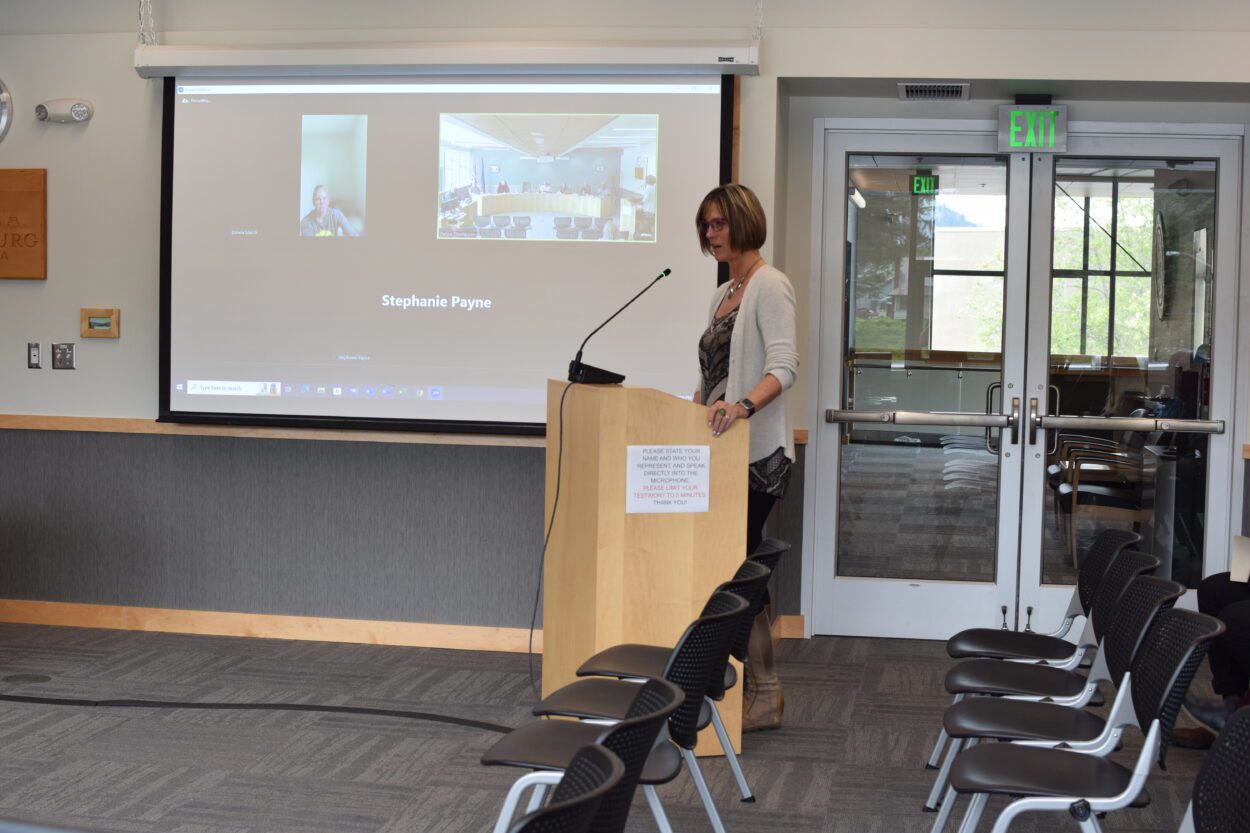
For the first time, Peterburg’s Borough is giving its school district the maximum amount of funding allowed by law. The Borough Assembly voted unanimously on June 3 to include $3.4 million in its budget for the coming school year.
This is the first time the Petersburg School District asked the borough for the maximum local contribution. The district, and others across the state, say state funding for public schools has not kept up with rising costs. Staff salaries, insurance, utilities, and heating fuel all cost more than they did a few years ago.
Petersburg residents voiced their support for funding to the cap at all three readings of the budget. Joshua Adams even brought his son along to help him out.
“I’m just here to say, “Fund to the cap!’” Let’s do this thing you guys,” he said. “And I’m here with my son. That’s Erik, he’s seven. He’s in school here in Petersburg. I want him to graduate with the same resources that his parents had when they were growing up, right Erik?”
“Yes!” his son answered, adding “I would just like to say, ‘Fund to the cap!’ because we need more money for schools.”
The Assembly passed the budget with a nearly $400 thousand deficit, voting to dip into reserves to cover that amount.
While it’s not the first time the borough has used reserves to balance the budget, this year’s deficit is a lot bigger than in recent years. At a meeting in May, Assembly Member Jeigh Stanton Gregor said the Borough would still have plenty left over after covering the deficit.
“It still leaves us with $5.6 million in reserves, which are still technically above our own budget policy for reserves,” he said. “But it’s a good problem to have, so I’m not losing any sleep over that during this budget cycle.”
Petersburg’s borough code requires policymakers to leave at least four to six months operating budget in reserves.
With the local funding, the Petersburg teachers union and Petersburg School District are one step closer to finalizing a new teachers contract. Negotiations started in January, but both groups said a historic lack of state funding complicated the talks. The state’s base student allocation, which is essentially the funding for each student in a district, hasn’t increased since 2017.
The two groups finally came to a tentative agreement that would boost teacher salaries by 10% to 15% last month, but it came with two conditions. The first – full local education funding – has now been met.
The second condition is the passage of $175 million in one-time public education funding in the state’s operating budget. Gov. Mike Dunleavy can veto some or all of that funding, but he signaled last month that he wouldn’t do so. Dunleavy is expected to announce his vetoes later this month.











